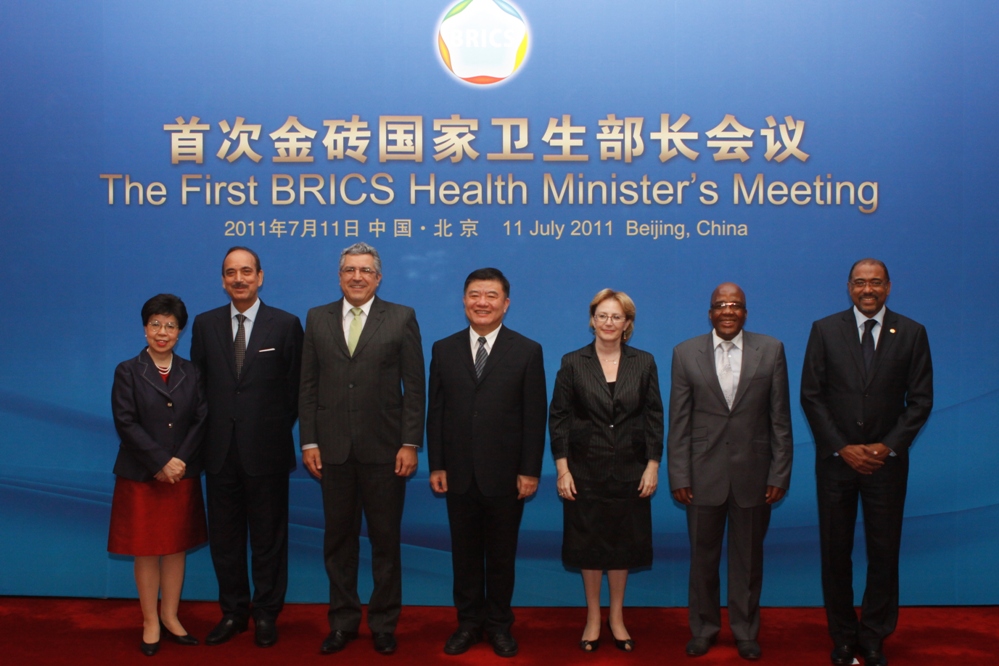A New Tool to Analyze an Evolving Governance Landscape
Today, the landscape of global health governance is one of incredibe complexity and ever changing structure. Over the last two decades we have witnessed a rapid expansion in the global health agenda and now, we are also witnessing a governance outlook that is being shaped by broader geopolitical shifts.
While the G8 is all but obsolete in setting the global agenda, a new set of “emerging powers” is increasingly taking center stage. This summer, the BRICS (Brazil, Russia, India, China, and South Africa) hosted their first Ministers of Health Summit, drawing the attention of the heads of top UN agencies like the World Health Organization and UNAIDS (one is reminded of the way heads of UN agencies once flocked to the sidelines of G8 meetings). The outcome of that meeting, the “Beijing Declaration,” an agreement that focused on access to essential medicines, could not have set a more stark contrast from the priorities of the traditional donors.
In contrast, many Western countries have become more wary about contributing to global health efforts. UNAIDS and the Kaiser Family Foundation reported in August that funding for HIV/AIDS decreased by 10 percent in 2010 and a number of countries facing austerity measures and domestic pressure have moved to decrease foreign assistance.
There has also been incredible institutional change. The World Health Organization has ceded its once near monopoly on “international health” to an ever growing alphabet soup of UN agencies and programs, private donors, NGOs, civil society organizations, and public-private partnerships. This new diversity in actors has contributed immensely to the advancement of public health but the diffusion of efforts has also created confusion as to who sets the global health agenda and which organization is responsible for coordinating global action.
Not only are the players changing, but public health priorities are also shifting. Many in recent years have questioned so-called AIDS exceptionalism. This year’s UN General Assembly saw chronic, non-communicable diseases rise to the international stage for the first time. As our next special issue will demonstrate, the quest for universal health coverage will likely drive the health agenda of both rich and poor countries in the coming years. Advances in biotechnology and pharmaceuticals will continue to improve the lives of millions, although the fight over intellectual property will remain a huge hurdle for global governance. With climate change and environmental problems we will see an increasing number of famines, pandemics, and public health emergencies that will require a coordinated, global response.
Over the last four years Global Health Governance has provided a space for scholarly discussion and analysis of these complex dynamics. With the accelerating speed and expanding scope in the evolution of global health governance we thought it only appropriate that we, too, begin to integrate new tools to broaden and deepen that scholarly dialogue.
Today we launch the Global Health Governance blog, which will complement our standard issues and allow us to continue and advance the conversations begun in the research articles published by GHG. Our blog will offer a place for leaders in the field to discuss, debate, and analyze current trends in the global governance for health. It will also serve as a venue for students, practitioners, scholars, and observers to both learn and share their perspectives.
The blog will feature a number of contributing bloggers – experts who will share their insights and opinions with our readers on a regular basis.
Contributing bloggers will include:
–Joshua Busby, Assistant Professor, LBJ School of Public Affairs, University of Texas-Austin and Non-resident Fellow, Center for a New American Security
–David Fidler, James Louis Calamaras Professor of Law, Indiana University
–David Heymann, Head and Senior Fellow, Centre on Global Health Security, Chatham House; Former Assistant Director-General, World Health Organization
–Rebecca Katz, Assistant Research Professor, George Washington University
–Ilona Kickbusch, Director, Global Health Programme, Graduate Institute of International and Development Studies
-Additional bloggers to be announced
We will also welcome submissions for guest posts on any of the range of issues covered by the journal.
As with any new venture, our blog and website will be a work in progress. We ask that you please let us know your thoughts, suggestions, and even criticisms. And, of course, we welcome your comments on our blog posts!
We are excited to embark on this next phase for Global Health Governance and invite you to join us as we explore the complex and ever evolving world of global health.
Yanzhong Huang
Editor
Daniel J. Barker
Managing Editor


Trackbacks/Pingbacks